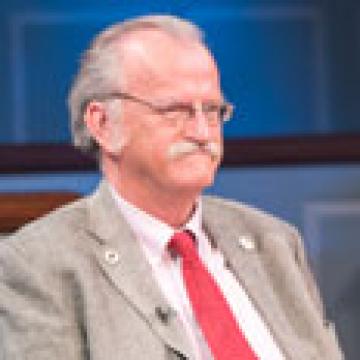Thomas Jefferson: Impact and Legacy
Thomas Jefferson's presidency initiated the quarter-century rule of the "Virginia Dynasty" (1801-1825), including the presidencies of loyal Jeffersonians James Madison (1809-1817) and James Monroe (1817-1825). As the center of political gravity shifted southward with the Republican ascendancy, the party gained new strength to the north, progressively marginalizing Federalists as an effective national opposition party. But the founders' fantasy of faction-free politics was not to be fulfilled. Emerging splits among Republicans themselves pitted orthodox, strict constructionist "Old Republicans" against "National Republicans" who favored a more positive and activist (according to critics, Hamiltonian) conception of federal power. Quarrels among Jeffersonian-Republicans foreshadowed the division between Jacksonian Democrats, self-proclaimed legatees of Jeffersonian orthodoxy, and Whigs who promoted a neo-Federalist, National Republican policy agenda while warning against "King Andrew's" dangerous consolidation of authority.
Executive Power
Jefferson's performance as President justified divergent conceptions of executive power. Known for his hostility to strong central government and the judicial overreach of the Supreme Court under John Marshall, Jefferson nonetheless jettisoned strict construction when the nation's vital interests were threatened. Self-preservation—the first law of nature and nations—took precedence over the constitutional limitations that he scrupulously observed in peacetime. Andrew Jackson embraced this robust conception of his presidential power, even as Whig opponents drew inspiration from Jefferson's anti-monarchical precepts.
The Private and Public
Jefferson has been a great democratic icon precisely because he so eloquently articulated fundamental tensions in Americans' understanding of the people's power. The United States had "the strongest Government on earth," Jefferson told his fellow Americans in his first Inaugural Address on March 4, 1801. Yet the people's great and irresistible power was a function of their devotion to a free government that guaranteed their rights: this was the only government "where every man, at the call of the law, would fly to the standard of the law, and would meet invasions of the public order as his own personal concern." Where an enlightened people determined their own destiny, Jefferson promised, there was no necessary or inevitable conflict between private rights and public good.
Rights, Rhetoric, and Reality
Jefferson will always be celebrated for articulating the American national creed, the fundamental and universal principles of self-government that he set forth in the Declaration of Independence. At the same time, those very principles—most notably, that "all men are created equal"—have been turned against him, as successive generations of critics have condemned him as a hypocritical slave owner. Jefferson cannot escape criticism: he failed to emancipate his own slaves and he presided over the "peculiar institution's" rapid expansion to the South and West. Yet the conflicts that shaped the new nation's history—and Jefferson's career—defied easy solutions. Jefferson and his contemporaries struggled, often unsuccessfully, to reconcile the conflicting claims of nation-building and natural rights, of power and liberty, and of slavery and freedom. Their legacy to us is the history of the conflicts that engaged them—and should engage us—in fulfilling the American Revolution's promise, to the nation and the world.
